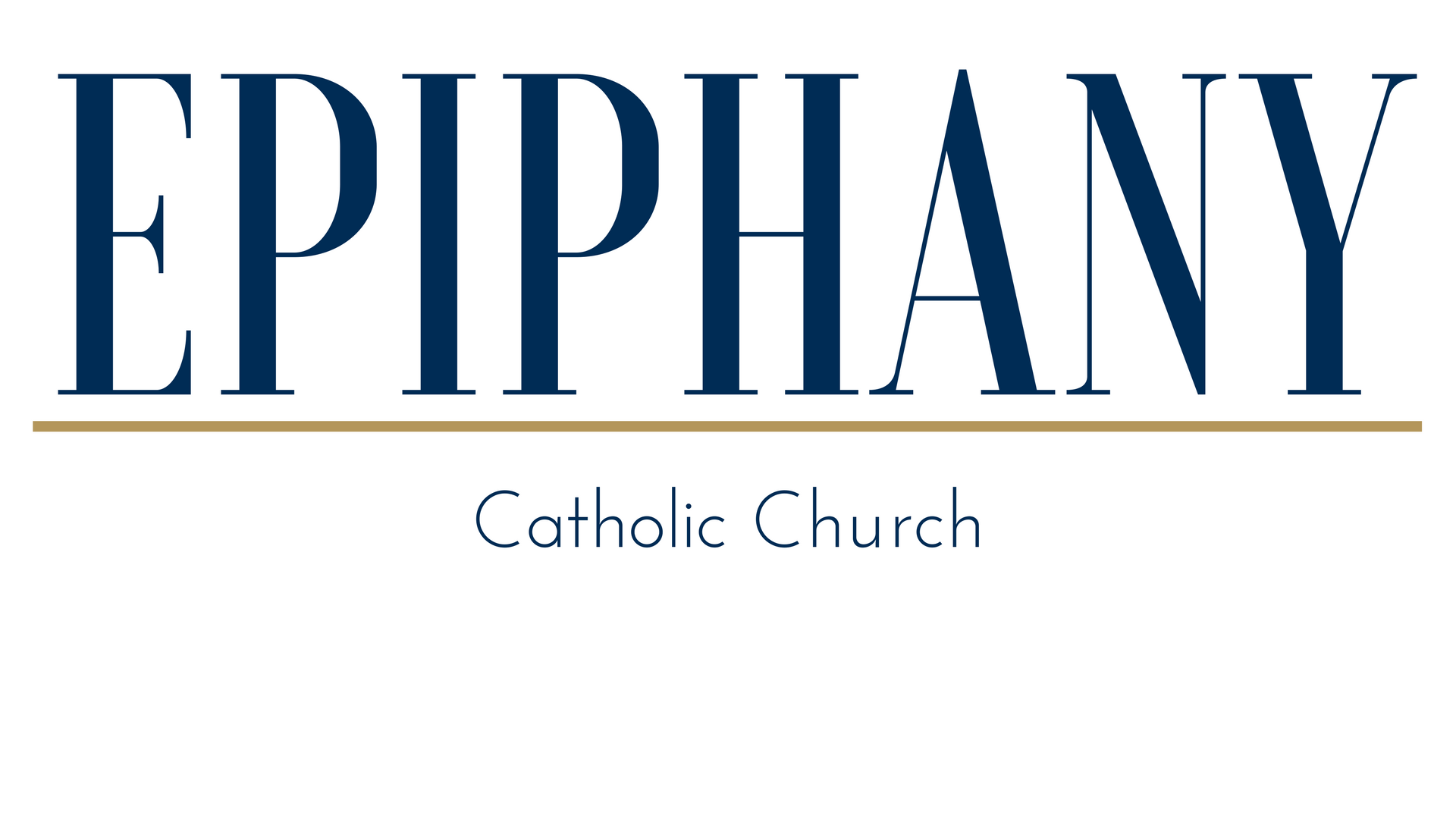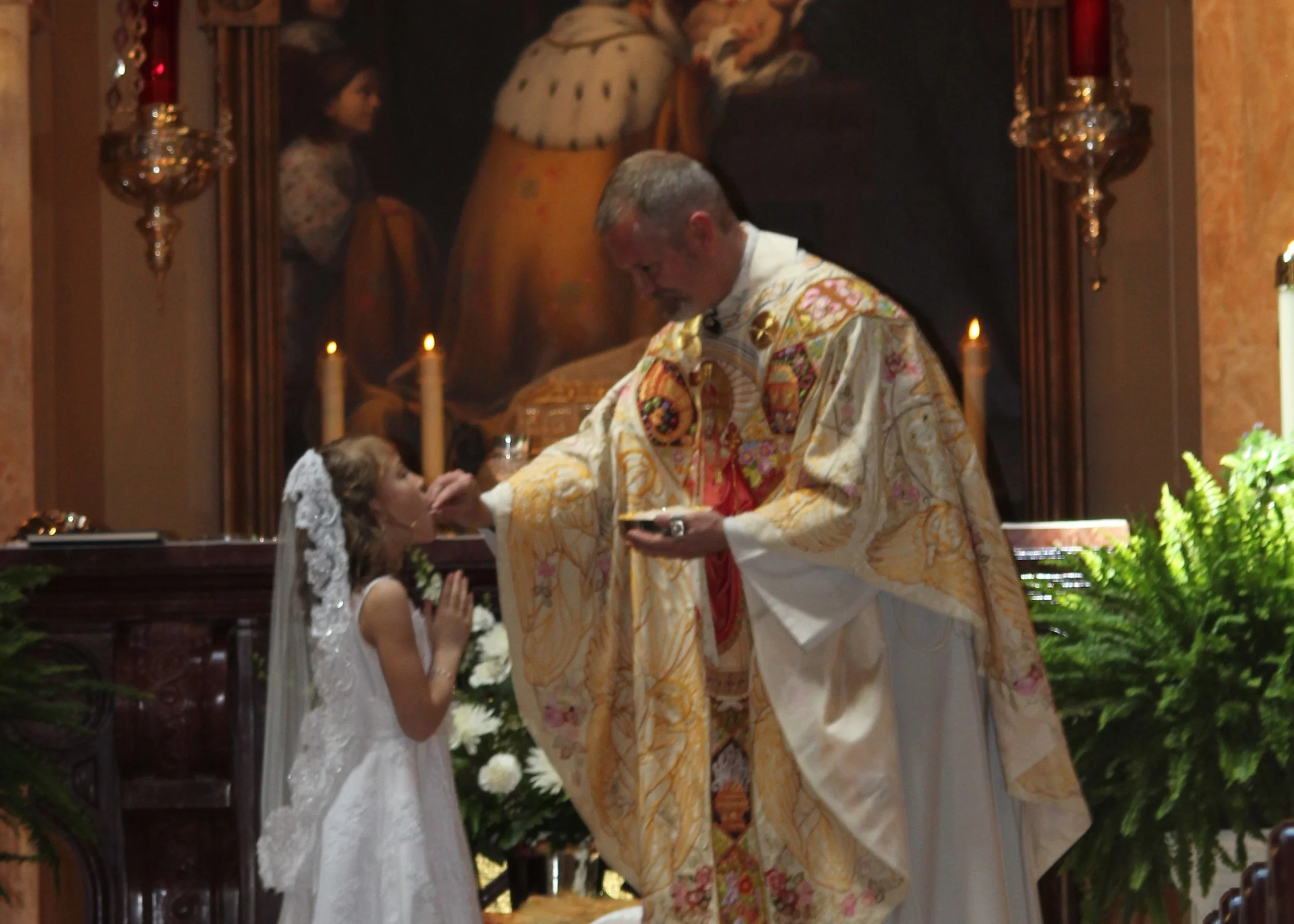The Holy Eucharist
"The Eucharist is the center of parish life, and particularly of the Sunday celebration. Since the unity of the Church is born from the encounter with the Lord, the great care given to adoration and celebration of the Eucharist, enabling those who participate in it to experience the beauty of Christ's mystery is no secondary matter." - Pope Benedict XVI, Address to a Pastoral Convention, 2009
See also Pope Benedict XVI, The Sacrament of Charity, 2007
The Sacrament of the Eucharist
Once we become members of Christ's family, He does not let us go hungry, but feeds us with His own Body and Blood through the Holy Eucharist.
In the Old Testament, as they prepared for their journey in the wilderness, God commanded His people to sacrifice a lamb and sprinkle its blood on their doorposts, so the Angel of Death would pass by their homes. Then they ate the lamb to seal their covenant with God.
This lamb prefigured Jesus. He is the real "Lamb of God," Who takes away the sins of the world (John 1:29). Through Jesus we enter into a New Covenant with God (Luke 22:20), Who protects us from eternal death. God's Old Testament people ate the Passover lamb. Now we must eat the lamb that is the Eucharist. Jesus said, "unless you eat My flesh and drink My blood you have no life within you" (John 6:53).
At the Last Supper He took bread and wine and said, "Take and eat. This is My body...This is My blood which will be shed for you" (Mark 14:22-24). In this way Jesus instituted the Sacrament of the Eucharist, the sacrificial meal Catholics consume at each Mass.
The Catholic Church teaches that the sacrifice of Christ on the Cross occurred "once for all;" it cannot be repeated (Hebrews 9;28). Christ does not "die again" during Mass, but the very same sacrifice that occurred on Calvary is made present on the altar. That's why the Mass is not "another" sacrifice, but a participation in the same, once-for-all sacrifice of Christ on the cross.
Paul reminds us that the bread and the wine really become, by a miracle of God's grace, the actual Body and Blood of Jesus: "Anyone who eats and drinks without recognizing the Body of the Lord eats and drinks judgment on himself" (1Corinthians 11:27-29).
After the consecration of the bread and wine, no bread or wine remains on the altar. Only Jesus Himself, under the appearance of bread and wine remains.
Parish Preparation
At Epiphany Parish, the Sacrament of the Holy Eucharist is typically received in the second grade after two years of preparation through the Religious Education Program or through our Catholic grade school. Home School families are free to follow formation materials approved by the Diocese and then incorporate their children in our parish sacramental celebration. Dates and information about this year’s First Communion Mass can be found on the CCD page of our website.
To receive the Sacrament of the Holy Eucharist for the first time as an adult or older child, please consult the pastor so that we can help facilitate this moment of grace.
Children making their First Holy Communion, and all who gather for the celebration, receive a Plenary Indulgence under the usual conditions.
More information about the Holy Eucharist can be found in the Catechism of the Catholic Church (1322-1419).

